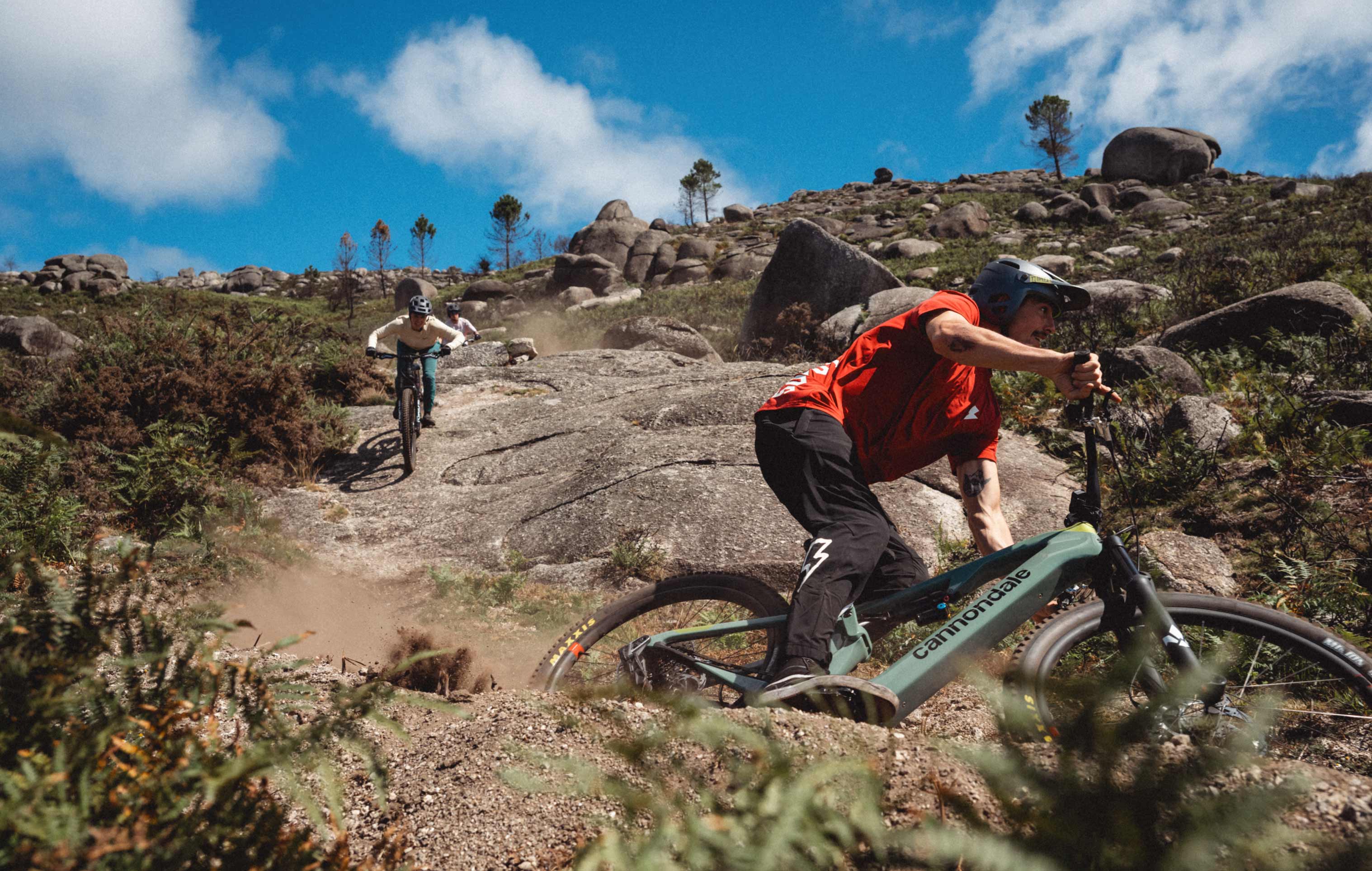Start Learning: Moterra SL Tech

Photography by Cannondale and Cut Media
As soon as it debuted a few weeks ago, Moterra SL made a bold, category-shifting statement about eMTB capability. Here’s how that was possible.
In February, Cannondale released the Moterra SL. The press event was epic. The reviews were enthusiastic. The superlatives flowed freely. We were very proud of this radical new machine.
Stellar performance aside, the bike’s headline was a statement of fact: Moterra SL was the lightest full-power electric mountain bike ever made.* In other words: Nothing on the long-travel eMTB market that’s this light also packs this much power that benefits both range and torque. It’s as revelatory as it is rowdy.
But how? What actually makes it possible to build this thing – which can go as hard and as long as the market’s heavy-duty eMTBs, but still dance through the trail and fly through the air like Mona’s Scalpel? It seems like a contradiction in the laws of physics – so to make it happen, those laws had to be challenged.
*Moterra SL is the first 150mm trail bike to pack 85Nm of torque, 600W+ of peak output, and 601Wh of power into a machine weighing as little as 19.7kg /43.4lbs. Full-power fun meets lightweight agility – it’s in a class of its own. *eMTB with drive unit capable of at least 85Nm of torque and battery capacity of at least 600Wh.


Being Flexible
First, let’s look at weight. To help serve the mission of keeping Moterra SL as light as possible, we looked in-house. Our FlexPivot™ chainstay design was tempting, but we’d never before used it for a production bike with more than 120mm of travel. Moterra SL came to the party with 150mm. How much tweaking was necessary, then?
Not a lot. While our FlexPivot tech has been around since the early 2000s (debuting on the first-generation Scalpel), the design has evolved to be far more capable. Rather than benchmarking the lowest weight possible and scaling up for longer-travel applications, the newest FlexPivot approach reverses that: make it heavy-duty, able to be trimmed down if necessary.
“The goal of the latest FlexPivot architecture has always been to use it on longer-travel bikes. We’ve been testing it on some relatively big bikes for years,” says Adam Opolka, design engineer for mountain bikes at Cannondale. “We’ve tweaked the shape of the stays and the carbon layup to comfortably handle a wider range, compared to prior generations, and we can fine-tune it relatively easily.”
“If it wasn’t so light, we could argue that it’s overbuilt for something like Scalpel,” Opolka adds, “Yet even on a bike like Moterra SL, it’s boosting stiffness and strength compared to pivots.”


Weighing Down
Beyond FlexPivot, Moterra SL saves weight in other ways, as well. The design and integration of the battery and drive system from the start of the concept – rather than choosing plug-and-play components later – was a huge benefit.
“It meant we could tailor components like the wiring harness and battery housing from the beginning,” says Roland Czuday, Cannondale’s product manager for electric mountain bikes. “For example, we could have used a carbon composite for the battery housing to keep weight down, but we chose a lightweight alloy instead, because it bleeds heat better. The frame could then be made lighter without more cooling considerations – vents, larger tubes, things like that.”
The peripheral hardware associated with a battery and drive unit – often overlooked by riders as contributing to the weight of their e-bike – were also optimized specifically for Moterra SL. “Our wiring harness was custom-made for this bike, not off the shelf, along with other small parts that add up,” Czuday continues. “No compromises was the goal – full-power, full-range, low weight – and this was hard, but these details helped a lot.”


Powering Up
Which brings us to the battery. At first glance, Moterra SL’s 600Wh battery seems on the smaller side of the available range: you’ll find 400Wh batteries on the lightest bikes, while up to 900Wh ones can be found on the biggest machines. But it’s what’s inside that counts.
“The latest 21700-type battery cells are what we used to create this battery, lighter and smaller than most, but packing the power of something larger,” says Czuday, “and because we custom made it, we could shape it specifically for Moterra SL. There’s no cutaway for battery swapping, too, so the frame can get even lighter.”


The Final Result
Czuday estimates several hundred grams were saved using FlexPivot instead of traditional pivots, as well as customizing the battery, drive unit, and related hardware instead of using off-the-shelf components. So were compromises made elsewhere to keep overall development costs in check in other areas – for example, durability?
“Our press event in Portugal was great, with dozens of bikes out. Many riders pushing those bikes very hard for days. Yet we had zero technical issues of any kind,” Czuday smiles. “All the testing was so intense, we weren’t worried, but it still felt good, so I think we achieved our goal.”